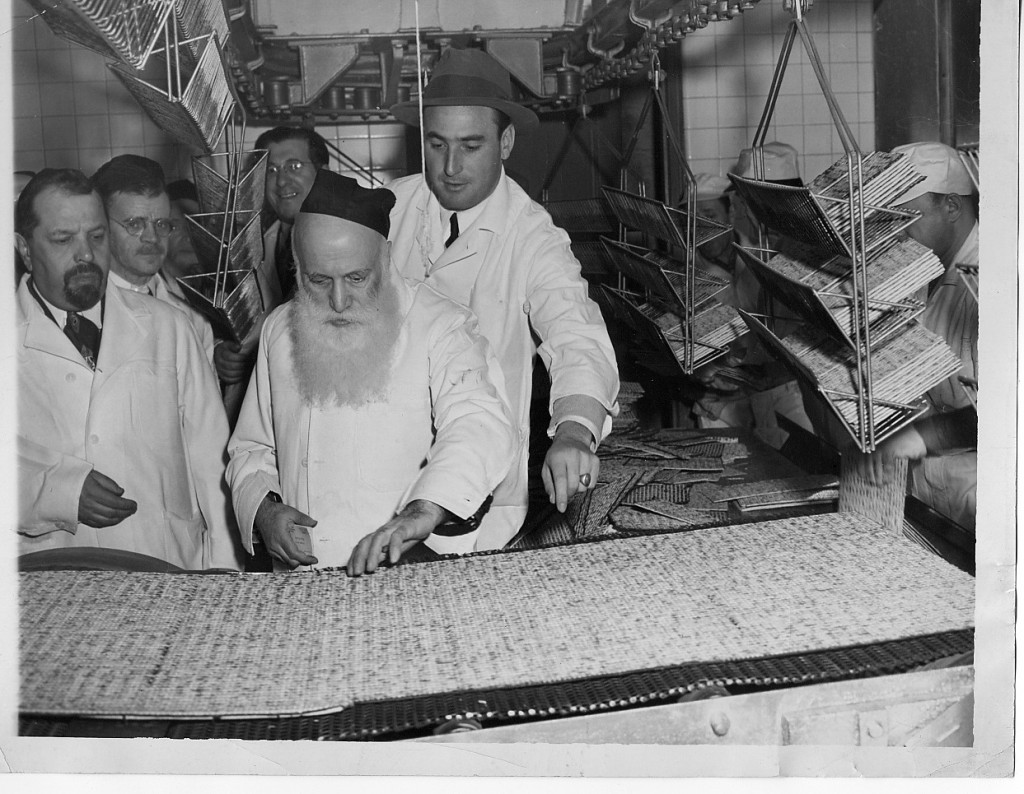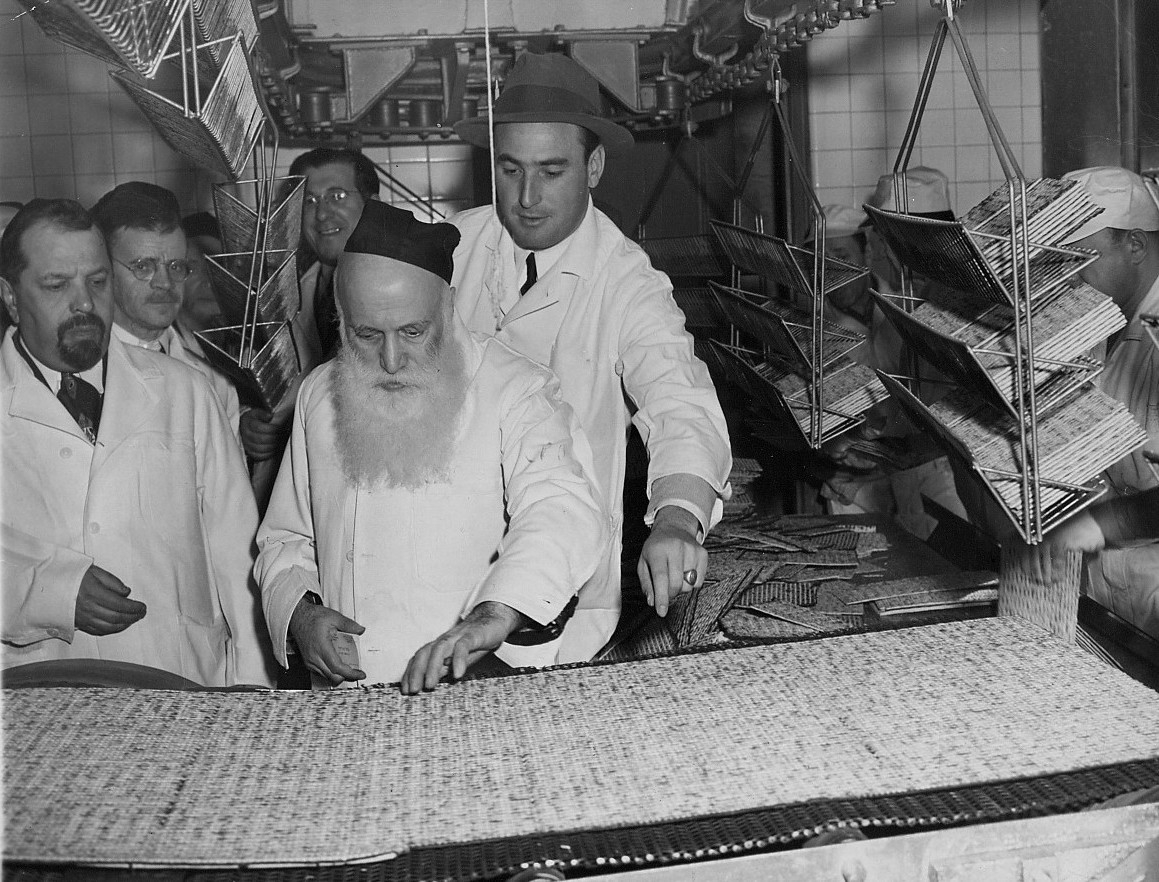
Baked matzah coming out of the oven at Streit’s Matzo factory on Manhattan’s Lower East Side, date unknown. (Courtesy Streit’s Matzo)
Passover starts Monday night, and JTA has recently published two stories about contemporary matzah makers: artisanal producers in the United States and France’s oldest matzah bakery.
In 1934 JTA published a feature on the North American matzah industry, which it noted was “confined mainly to five or six large bakeries in New York and Jersey” shipping unleavened bread “to the four quarters of the world.” These New York-area producers got orders “even from Europe and strangely enough from Palestine, too.”
JTA reported:
The demand for American-made matzohs in Palestine, of course, is likewise explained by the fact of habit. So many American Jews transplanted to Palestine soil naturally look upon America as their fathers looked upon Russia and Poland. It seems more “Yiddish” to perform the ceremonies as our fathers did. So American matzohs from New York grace many seder tables in Zion.
The following November, JTA had another matzah story: the Federation of Yeshivas and Talmud Torahs passed a resolution declaring that, as JTA described it, “religious schools are entitled to the profits on the sale of matzohs during Passover week. The resolution was based on the agreement that the Yeshivas teach children to eat matzoh during that period.”
Given that the meeting took place in November, it’s not entirely clear why the federation focused on matzah, as opposed to profits from, say, Chanukah-candle makers or oil purveyors. Whatever its motivations, the resolution appears not to have been heeded, as there are no follow-up reports of matzah companies turning over their revenues to Jewish education.
Separately, that same year there were investigations into matzah companies’ bilking consumers by short-weighting their products — complete with “matzoh moguls” being brought into court.
JTA has documented Jewish history in real-time for over a century. Keep our journalism strong by joining us in supporting independent, award-winning reporting.






